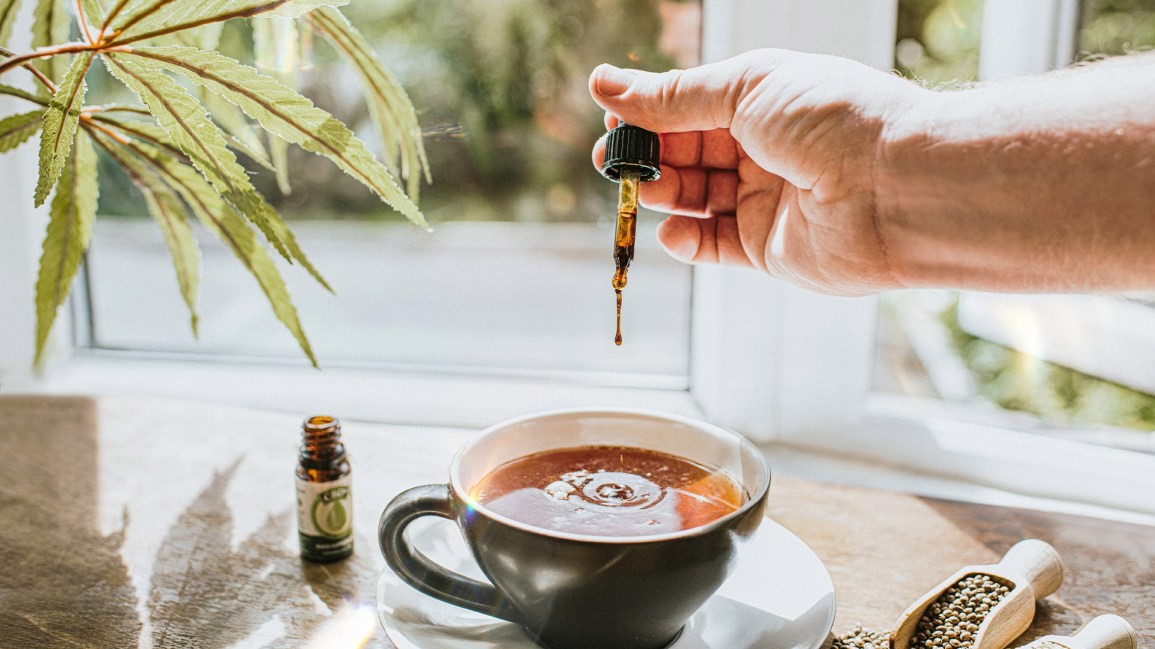New dating rules, boredom and lack of privacy are changing sexual relations by Carlett Spike, AARP,…

‘I’m obsessed with walking 100,000 steps every day’
Liz spends 11 to 13 hours a day jogging around her coffee table.
Liz’s unhealthy obsession with exercise has consumed her life. A psychologist explains how we’re all affected by this dangerous addiction, and reveals expert ways to deal with it.
Hitting those 10,000 steps every day is a *real* struggle, especially if you work a desk job.
If anything, it’s a rare accomplishment to find the time and energy to hit anything beyond that number. So you can only imagine walking 100,000 steps a day – yes, day, and yes, 100,000 – is far out of anyone’s reach… that is until you meet Liz.
Appearing on an episode of Dr Phil, Liz explains that she has an unhealthy obsession with spending 11 to 13 hours daily jogging around her coffee table until she hits 100,000 steps on her fitness tracker.
“I set my alarm between 3.30 and 5am,” she says in the promo video.
“I usually jog about three and a half hours before I take a break. When it’s time to take my first break, I usually eat yoghurt and blueberries – I just mix it in and I jog for about another two and a half, three hours and then I eat my second breakfast. And then I jog for about another three hours and then I eat my lunch.”
To walk that many steps in a day would be considered somewhat of an achievement on the one-off occasion, but for Liz, exercise and food has “consumed [her] life”.
“My brain is a tangle of obsession of eating and food and calories,” Liz adds. “That’s literally all I think about.”
Even sitting in the interview with Dr Phil, Liz admits she’s consumed by her anxiety.
“Sitting in this interview is giving me anxiety and making me wonder how many steps I’m missing and how many calories are going straight to my thighs.”
Liz’s case is an extreme, but it raises the question: have fitness trackers caused us to develop an unhealthy obsession with exercise?
According to Lysn psychologist Noosha Anzab, yes – but the problem goes far beyond the average fitness watch.
“It’s not just the watches and fitness trackers we need to worry about when keeping exercise obsession in mind. The obsession is much bigger than a smartwatch or heart rate monitor,” Anzab tells body+soul.
It involves the advancement of all fit-tech such as smart scales, calorie counting apps and meal delivery systems, and social media, which have all contributed to our growing “obsessive culture”.
“The obsession with fitness and exercise has always been acknowledged, however, it was never this extreme. With the amount of technology available to us, we have this obsessive culture growing where we need to control things simply because we can, and we need to control these things such as our macros or calories or steps or heart rate because we overestimate the threat.
“We might not feel good enough about ourselves and be threatened by others, which can be a motivating factor as to why we spend hours in the gym or track how well we do physically when exercising by using monitors and trackers.”
But it’s also our growing stress that’s responsible for fuelling this unhealthy obsession.
“Nothing feeds our obsessions more than stress because stress either reinforces the distress triggered by the obsessions, causing us to obsess more in an attempt to counter it, or it simply turns the thoughts up louder. We know when we are stressed our ability to cope is diminished, we aren’t that equipped to rationalise or fight the obsessions when we are stressed, and this aids the development even more.”
How to fight an exercise obsession
Anzab shares 5 steps to overcoming an exercise obsession
1. Acknowledge it
It might sound counter-intuitive, but to accept the obsession is much better than fighting it. Acknowledging the obsession, and letting it pass like a car on a highway, is a fantastic strategy to employ to fight an obsession.
2. Try to reduce your stress levels
If you’d like to give it a go on your own, it would be worthwhile to try to reduce your stress and anxiety in its simplest form – via good diet and adequate sleep. It’s really important to consider that getting more sleep helps reduce stress and fatigue and diet can help keep this in track.
3. Meditate
Engaging in meditation and breathwork is also a fantastic way to help aid the relaxation response along and these can be done via lots of outlets such as YouTube, apps or face-to-face classes.
4. Seek help from a therapist
When faced with an obsession, it is worthwhile to try to seek help from a therapist who can help provide a healthy way to overcome the obsessive thinking traits. It might seem daunting, but seeing a therapist has its benefits. Not only can a therapist help you find ways to rationalise the obsessive thoughts, but they can really help in collaborating with you to find ways to drop your stress and anxiety, to relax and to be a bit more in control. It can be quite cathartic. A therapist can assist in helping you defuse the obsessions rather than fuse with them.
5. Practice cognitive defusion
Cognitive defusion is a brilliant way of being able to notice your thoughts, and look at them rather than look for them and in turn get caught up by them. It’s a very do-able way of being able to see the obsessions, but not get swept up by them. It can be as simple as just thanking your mind each time it has an obsessive thought, rather than dwelling on the thought. A therapist can help in putting this to practice.
How to help others
On the other hand, if you’re concerned about a family member or friend who seems like they have an obsession but are unable to accept it themselves, Anzab says it’s crucial to “let them know that you’ll support them during their process of seeking help” from a professional.
“No obsession is too silly or too stupid, and people can’t just snap out of their obsessions – it’s important to be gentle, validating and as understanding as possible when confronted with family or friends who may have an obsession.
“It’s really important to consider that the obsessions are more distressing for the people directly experiencing them than for those who are watching it unfold in their nearest and dearest. Proceed with caution, be gentle and keep in mind that there is help out there.”
About the Author:
Juna Xu
About Holistics Voice
We are a community of people committed to things like yoga and meditation, healthy diets, organic skin and hair care, maintaining wellness, herbal remedies, sexual wellness, life coaching, life time physical fitness, organic supplements, holistic health healing remedies, alternative medical practitioners and venues and organizations who support them.





This Post Has 0 Comments